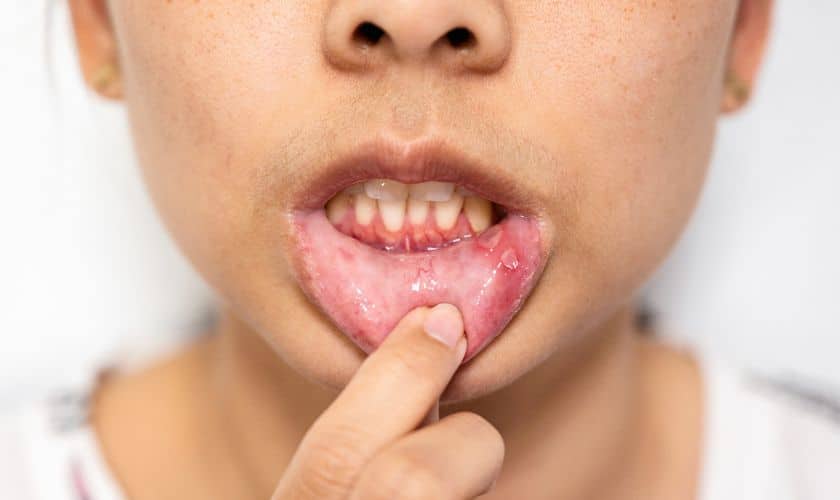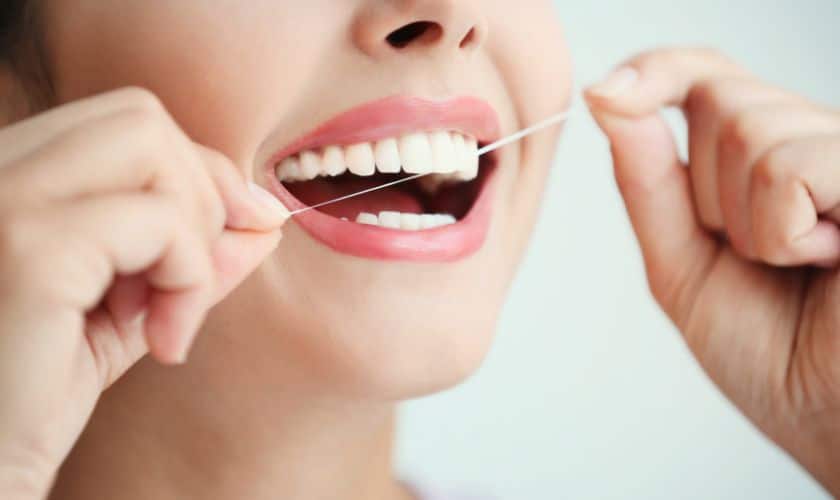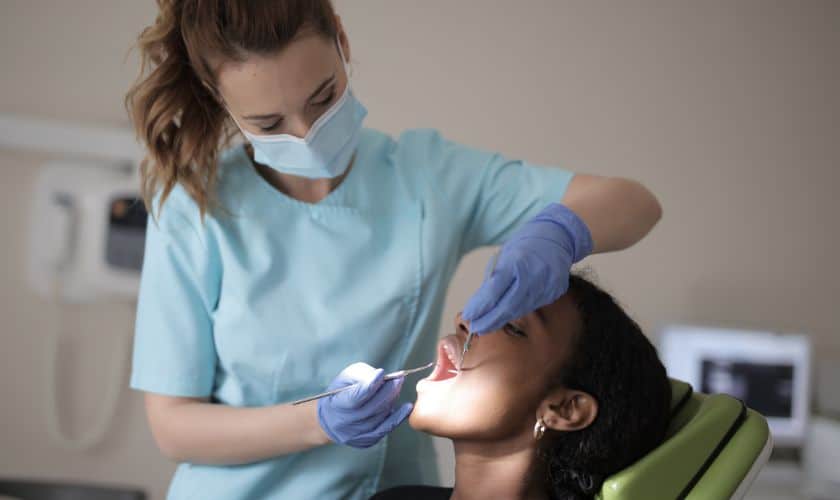
Canker sores, those pesky little ulcers that appear inside the mouth, can be incredibly uncomfortable and disruptive. While they’re usually harmless and tend to heal on their own within a week or two, they can make eating, drinking, and even speaking a painful experience. Understanding what causes canker sores can help you avoid them altogether. Here are five common triggers to watch out for:
1. Acidic Foods and Beverages
Acidic foods and beverages can irritate the delicate tissues inside your mouth, potentially triggering canker sores. Citrus fruits, tomatoes, and certain juices are some common culprits. Similarly, acidic drinks like coffee, soda, and alcohol can also exacerbate the problem. While eliminating these items entirely may not be necessary, moderating your consumption can help reduce the likelihood of developing canker sores.
2. Stress
It’s no secret that stress can wreak havoc on our bodies, and our oral health is no exception. Stress weakens the immune system, making us more susceptible to infections and inflammations, including canker sores. Additionally, stress-induced habits like teeth grinding or jaw clenching can further aggravate oral tissues, increasing the likelihood of developing sores. Finding healthy ways to manage stress, such as meditation, exercise, or hobbies, can not only improve your overall well-being but also reduce the occurrence of canker sores.
3. Trauma to the Mouth
Accidental trauma to the mouth, such as biting the inside of your cheek or lip, can create an environment conducive to canker sore formation. Additionally, dental procedures, poorly fitting dental appliances, or even aggressive tooth brushing can injure the delicate tissues in your mouth, leading to the development of sores. Being mindful of how you chew your food, avoiding habits like chewing on pens or pencils, and using a soft-bristled toothbrush can help prevent unnecessary trauma to your oral tissues.
4. Certain Foods and Additives
Some individuals may be sensitive to certain foods or additives, which can trigger an immune response and lead to the development of canker sores. Common culprits include nuts, chocolate, spicy foods, and additives like sodium lauryl sulfate (SLS), commonly found in toothpaste. Keeping a food diary can help you identify any patterns between your diet and the occurrence of canker sores, allowing you to make informed choices about what to avoid.
5. Hormonal Changes
Hormonal fluctuations, particularly in women, can influence oral health and increase the likelihood of developing canker sores. Hormonal changes during menstruation, pregnancy, or menopause can disrupt the balance of bacteria in the mouth and weaken the immune system, making it easier for canker sores to develop. While hormonal changes are a natural part of life, maintaining good oral hygiene and overall health can help mitigate their effects on oral tissues.
While avoiding these common triggers can significantly reduce the likelihood of developing canker sores, it’s essential to remember that individual responses may vary. If you experience frequent or severe canker sores despite your best efforts to avoid triggers, it’s advisable to consult with a healthcare professional or dentist for further evaluation and treatment options.
In conclusion, being mindful of your diet, managing stress effectively, practicing good oral hygiene, and paying attention to your body’s responses can help you steer clear of canker sore triggers and maintain optimal oral health. By taking proactive steps to prevent canker sores, you can enjoy a more comfortable and pain-free life.
What virus causes multiple canker sores?
The virus commonly associated with multiple canker sores is the herpes simplex virus (HSV). Specifically, HSV-1 is known to cause most cases of oral herpes, including recurring canker sores. Canker sores, also known as aphthous ulcers, are painful, shallow lesions that develop on the soft tissues inside the mouth, such as the inner cheeks, lips, tongue, and throat. While other factors such as stress, injury, hormonal changes, and certain foods can trigger canker sores, HSV-1 can play a significant role in their recurrence. Unlike cold sores, which typically appear on the lips or around the mouth, canker sores are not contagious and are not caused by the herpes simplex virus type 2 (HSV-2), which is associated with genital herpes.
What should I eat if I have canker sores?
If you’re dealing with the discomfort of canker sores, choosing the right foods can help alleviate pain and promote healing. Here are some recommendations for what to eat if you have canker sores:
- Soft Foods: Opt for soft, easy-to-chew foods that won’t aggravate the sensitive sores. Examples include yogurt, mashed potatoes, scrambled eggs, cooked vegetables, and smoothies.
- Cool or Cold Foods: Cold foods can help numb the pain and reduce inflammation. Try eating chilled fruits like applesauce, bananas, or soft melons. Ice cream or frozen yogurt can also provide relief.
- Non-Acidic Foods: Acidic foods can irritate canker sores and prolong healing. Avoid citrus fruits, tomatoes, vinegar, and spicy foods. Instead, focus on neutral or alkaline foods like oatmeal, rice, pasta, and bread.
- Gentle Beverages: Stay hydrated with plenty of water or soothing drinks like herbal teas or diluted fruit juices. Avoid carbonated beverages and acidic drinks like orange juice or soda.
- Avoid Irritants: Steer clear of crunchy, hard, or sharp foods that can scratch or irritate the sores. This includes chips, crackers, nuts, and tough meats.
- Foods Rich in Vitamins and Minerals: Certain nutrients can support healing and boost immune function. Incorporate foods high in vitamin C, vitamin B12, zinc, and iron, such as leafy greens, lean meats, nuts, seeds, and fortified cereals.
- Probiotic Foods: Probiotics can help rebalance the oral microbiome and promote oral health. Consider including yogurt with live cultures, kefir, sauerkraut, or kimchi in your diet.
- Avoid Trigger Foods: Pay attention to your diet and identify any foods that seem to trigger or worsen your canker sores. Common triggers include nuts, chocolate, coffee, and highly acidic or spicy foods.




